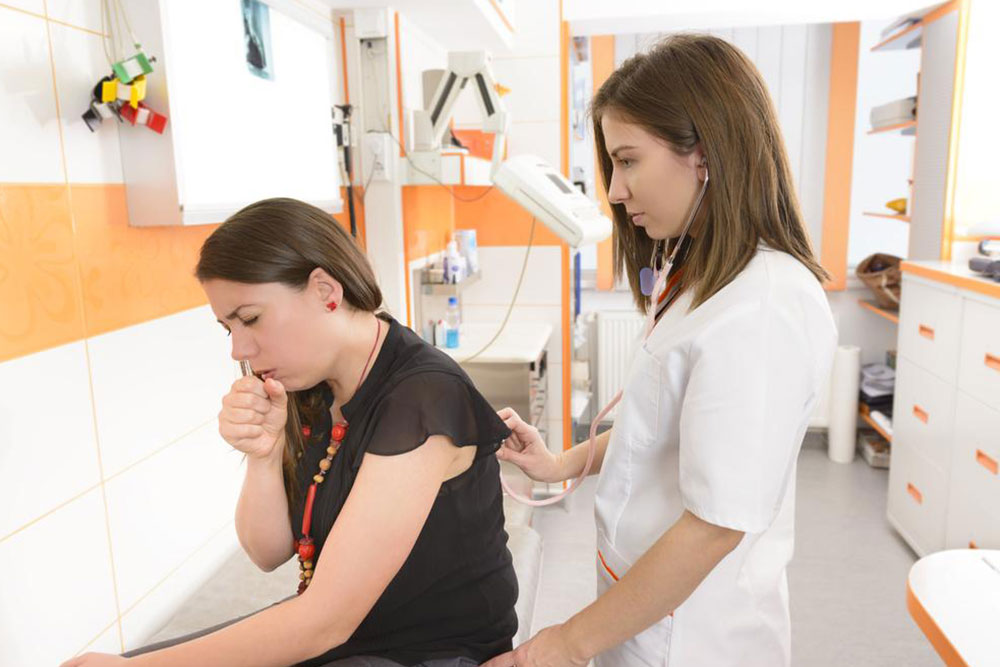Comprehensive Therapeutic Approaches for Advanced Lung Cancer Management
This comprehensive guide explores modern and emerging treatment strategies for advanced lung cancer, highlighting innovations in radiation therapy, personalized medicine, and supportive care. It emphasizes technological advancements like image-guided radiation therapy and molecular profiling, underlining their roles in improving patient outcomes. The article underscores the importance of multidisciplinary approaches in managing stage IV disease, aiming to enhance survival rates and quality of life through tailored treatments and symptom relief.

Comprehensive Therapeutic Approaches for Advanced Lung Cancer Management
Lung cancer remains one of the leading causes of cancer-related mortality worldwide, primarily due to its aggressive nature and late-stage diagnosis in many patients. As the disease progresses to advanced stages, understanding and implementing effective treatment strategies becomes crucial for improving patient outcomes and quality of life. Advanced lung carcinoma, especially in stage IV, presents unique challenges, including metastasis and resistance to traditional therapies. This comprehensive guide explores current and emerging treatment options for advanced lung cancer, emphasizing technological innovations, personalized medicine, and supportive care to optimize clinical results.
Lung tumors disrupt normal pulmonary function, leading to symptoms such as persistent cough, shortness of breath, wheezing, hemoptysis (blood in mucus), chest pain, and fatigue. Early detection remains essential but often difficult due to vague symptoms; hence, many patients present with advanced disease at diagnosis. Treatment aims are not only to extend survival but also to manage symptoms and maintain the quality of life.
Advances in Radiation Therapy
Radiation therapy has long been a cornerstone in lung cancer treatment. Traditional methods involve delivering high-energy radiation to targeted tumor sites, aiming to destroy cancer cells while sparing surrounding healthy tissue. Recent technological developments have elevated radiation therapy effectiveness, notably through the integration of image-guided techniques. Image-Guided Radiation Therapy (IGRT) employs advanced imaging systems such as CT scans synchronized with treatment delivery, allowing clinicians to visualize tumor position precisely during each session.
This technological innovation enhances targeting accuracy, enabling radiation doses to be concentrated more effectively on cancerous tissues. The benefits include reduced collateral damage to healthy lung tissue, fewer side effects like pneumonitis and esophagitis, and higher chances of tumor control. For patients with stage IV disease, where metastases are present, precise radiation can alleviate symptoms such as severe pain or bleeding, improving comfort and functional status.
In recent years, stereotactic body radiation therapy (SBRT) has gained prominence for its ability to deliver highly focused doses over fewer sessions, making it suitable for patients with limited peripheral tumors or patients unable to undergo surgery. The continual refinement of radiation techniques promises better tumor control with fewer adverse effects, especially vital for patients at advanced stages who often have compromised pulmonary reserve.
Systemic Therapies and Personalized Medicine
Beyond localized treatments, systemic therapies are fundamental in managing advanced lung cancer. Chemotherapy, targeted therapy, immunotherapy, and combinations thereof constitute the primary options. The choice depends on tumor subtype, genetic mutations, extent of metastasis, and patient health status.
For non-small cell lung cancer (NSCLC), the most prevalent subtype, molecular profiling has revolutionized treatment planning. Identification of driver mutations such as EGFR, ALK, ROS1, and others guides the use of targeted agents, significantly improving response rates and progression-free survival. Patients harboring EGFR mutations, for example, benefit from tyrosine kinase inhibitors (TKIs) like osimertinib or gefitinib, which specifically inhibit tumor growth pathways.
In addition, immune checkpoint inhibitors such as pembrolizumab and nivolumab have shown promising results, particularly in tumors expressing PD-L1. These immunotherapies empower the patient's immune system to recognize and attack cancer cells, offering hope for durable responses in some advanced cases.
Emerging and Supportive Treatment Strategies
Personalized treatment regimens are increasingly tailored to individual genetic and clinical profiles, integrating novel targeted drugs, immunotherapies, and combination approaches. Researchers are also exploring approaches like photodynamic therapy, which uses light-activated drugs to destroy cancer cells, and laser treatments to reduce tumor size and alleviate symptoms.
Supportive and palliative care remains a vital component, focusing on symptom management, nutritional support, psychological counseling, and rehabilitation. Ensuring patients' comfort and dignity is paramount, especially when curative options are limited.
In conclusion, the landscape of advanced lung cancer treatment is rapidly evolving, driven by technological innovation, molecular insights, and clinical research. Multidisciplinary teams are essential for developing individualized treatment plans that balance effectiveness and quality of life, ultimately aiming to extend survival and provide hope for patients battling this challenging disease.





